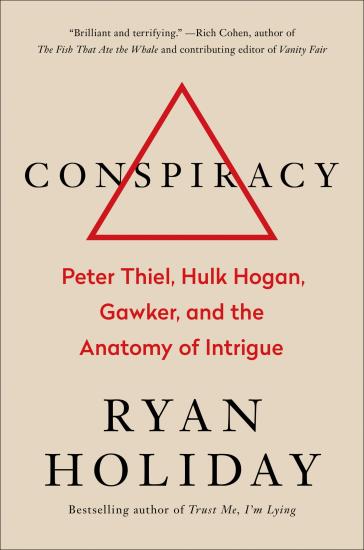
Rating: ****
Tags: Business & Economics, Industries, Media & Communications, Language Arts & Disciplines, Journalism, Biography & Autobiography, Business, Lang:en
Publisher: Penguin
Added: June 2, 2018
Modified: November 5, 2021
Summary
**An NPR Book Concierge Best Book of 2018! A stunning story about how power works in the modern
age--the book the New York Times called "one helluva
page-turner" and The Sunday Times of London celebrated as
"riveting...an astonishing modern media conspiracy that is a
fantastic read." Pick up the book everyone is talking
about.** In 2007, a short blogpost on Valleywag, the Silicon
Valley-vertical of Gawker Media, outed PayPal founder and
billionaire investor Peter Thiel as gay. Thiel's sexuality
had been known to close friends and family, but he didn't
consider himself a public figure, and believed the
information was private. This post would be the casus belli for a meticulously
plotted conspiracy that would end nearly a decade later with
a $140 million dollar judgment against Gawker, its bankruptcy
and with Nick Denton, Gawker's CEO and founder, out of a job.
Only later would the world learn that Gawker's demise was not
incidental--it had been masterminded by Thiel. For years, Thiel had searched endlessly for a solution to
what he'd come to call the "Gawker Problem." When an unmarked
envelope delivered an illegally recorded sex tape of Hogan
with his best friend's wife, Gawker had seen the chance for
millions of pageviews and to say the things that others were
afraid to say. Thiel saw their publication of the tape as the
opportunity he was looking for. He would come to pit Hogan
against Gawker in a multi-year proxy war through the Florida
legal system, while Gawker remained confidently convinced
they would prevail as they had over so many other
lawsuit--until it was too late. The verdict would stun the world and so would Peter's
ultimate unmasking as the man who had set it all in motion.
Why had he done this? How had no one discovered it? What
would this mean--for the First Amendment? For privacy? For
culture? In Holiday's masterful telling of this nearly unbelievable
conspiracy, informed by interviews with all the key players,
this case transcends the narrative of how one billionaire
took down a media empire or the current state of the free
press. It's a study in power, strategy, and one of the most
wildly ambitious--and successful--secret plots in recent
memory. Some will cheer Gawker's destruction and others will
lament it, but after reading these pages--and seeing the
access the author was given--no one will deny that there is
something ruthless and brilliant about Peter Thiel's shocking
attempt to shake up the world. **